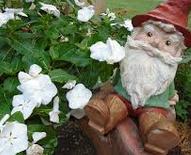To discover the etymological origin of the term duende, you have to know that there are several theories that exist in this regard. Thus, there is one that indicates that it derives from the Indo-Germanic root “dend”, which is used to refer to what is related to the house. Meanwhile, there is another that comes to establish that it emanates from old Spanish, specifically from “duen de casa”, which is synonymous with “owner of a house”.
A goblin is a fantastic being that appears in the mythology of numerous cultures. It is generally a creature with a humanoid appearance, although smaller than the average adult.
 According to the dictionary of the Royal Spanish Academy ( RAE ), goblins are spirits that take the form of children or old people and cause various disorders in the places where they live. Goblins, according to popular legends, have the ability to enchant or cast a spell on houses and forests.
According to the dictionary of the Royal Spanish Academy ( RAE ), goblins are spirits that take the form of children or old people and cause various disorders in the places where they live. Goblins, according to popular legends, have the ability to enchant or cast a spell on houses and forests.
It is common for goblins to be presented as humanoids that measure less than a meter in height , have pointed ears and are usually pranksters. Another characteristic of goblins is that they manage to sneak away easily, which is why it is very difficult to see and catch them.
Regarding their moral condition, folklore alludes to good elves who help people and malicious elves who cause them problems. These problems caused by goblins, however, are not usually serious.
There are many types of elves according to each culture . Among the best known are gnomes , associated with the underground world, mines, forests and gardens. These elves wear large red hats. The leprechaun , for its part, is an Irish leprechaun who dresses in green and guards cauldrons full of gold coins.
The figures of goblins have given a lot of play in both literature and cinema. A good example of this is that there are numerous films with these magical beings as protagonists. This would be the case, for example, of “Leprechaun. La noche del duende”, which premiered in 1993, or “El duende y yo” (1961).
Christmas elves , on the other hand, are small beings that help Santa Claus or Father Christmas . These are elves who make the toys and gifts that Santa Claus then distributes to the children at Christmas .
In the same way, we cannot ignore the existence of a Spanish musical group, specifically from Córdoba, that responds to the name “El duende calle”. Among his best-known songs are “Our glass ceiling” or “Barre las penas.”
Of course, we cannot ignore that there is also an expression that uses the term we are now dealing with. We are referring to the one that says “have duende”. It is used, especially in the field of flamenco, to indicate that a person, whether dancing, singing or playing an instrument, has a special sensitivity, a high capacity for expression or a different artistic soul that makes them unique.
